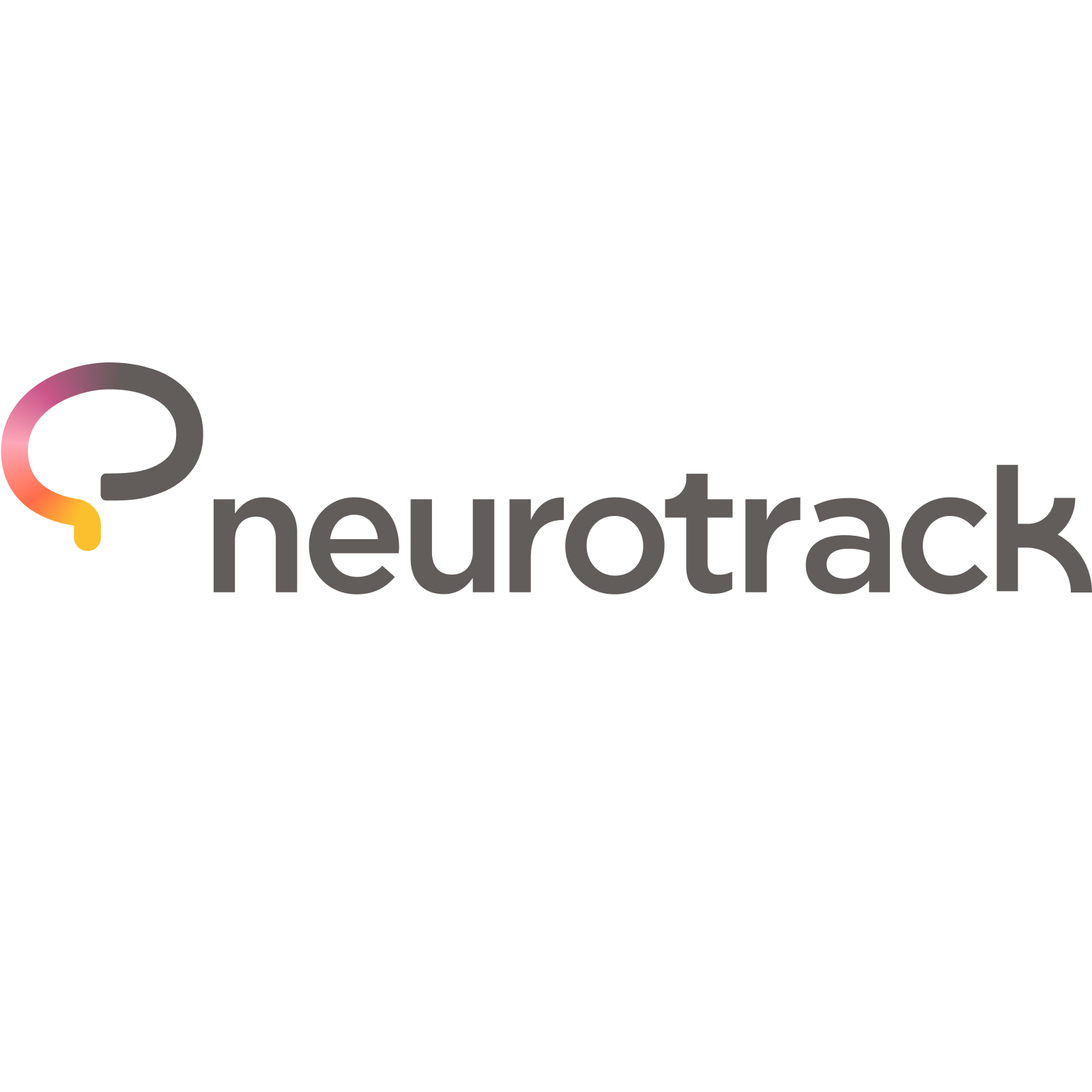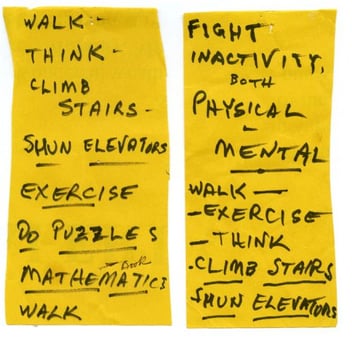

(PRESS RELEASE) A new study by Neurotrack, the leader in science-backed cognitive health solutions, and the University of Arkansas, finds that after only four months of intervention, health education and cognitive health coaching can lower risks and improve cognition for people at risk of developing Alzheimer's disease and dementia. The results reinforce that changing a few everyday habits can significantly reduce the risk of dementia, and reveal that personalized guidance and encouragement from a coach can be the most effective way to achieve that goal.
The study, published in GeroScience, is supported by a grant from the National Institute on Aging. The data represent the first published results of a two-year study evaluating the efficacy of health education and health coaching on three measures: neuropsychological cognition; self-reported global cognition; and self-reported Alzheimer's risk, which assessed both protective factors, such as high physical activity, and negative factors, such as high alcohol use. The participants were aged 45-75 and identified as being at-risk for developing the disease. The results were statistically significant for both intervention groups, but coaching became more significant when factoring in adherence, simply measured as participating in one session. All self-reporting tools were validated and reliable instruments.
Health education and health coaching focus on the modifiable risk factors for preventing Alzheimer's disease and dementia, such as nutrition, physical activity, sleep, stress, social engagement, and cognitive activity. There is a large body of evidence that shows positive lifestyle changes can slow or even stop the progression of cognitive decline. These findings come at a critical time as the U.S. population ages, placing more Americans at risk for dementia and Alzheimer's. With limited pharmaceutical treatments, and at a time when there is a shortage of neurologists, neuropsychologists and providers specializing in senior care, interventions aimed at prevention are the best course of action. Neurotrack has been developing a coaching program to integrate into primary care and make available to providers and health systems. In a recent Global Brain Health Survey, 91% of people said they would be interested in a simple brain test to understand their risk in order to apply any potential interventions.
"We were excited to find that these interventions showed reduced risk in such a short amount of time," said Jordan Glenn, Chief Science Officer, Neurotrack. "Adherence was the key factor to these improvements. However, even when a user interacted only once with a health coach, we saw significant reduction in their risk for developing cognitive decline. We look forward to continuing this research that has broad applicability with the potential to help millions of individuals and doesn't require a pharmaceutical treatment."
Participants in the health coaching arm of the study received personalized sessions with a health coach focusing on nutrition, physical activity, sleep, stress, social engagement, and cognitive activity. Health education participants received biweekly education materials focusing on the same modifiable lifestyle factors. When factoring in adherence, participants in health education and health coaching both improved their neuropsychological score, but coaching demonstrated greater improvement in self-reported global cognition and in protective behaviors, indicating that it may offer better protection as a treatment mode against developing dementia or Alzheimer's.
The study is ongoing and final results will be published upon completion in one year.
Neurotrack is working with providers and health systems to roll out its proprietary brain health program and 1:1 support from board-certified health coaches to provide to patients. Partnerships also include a Fortune 100 provider of long-term care insurance that recently made Neurotrack's cognitive assessment and health coaching services available to more than 30,000 policy holders.
In addition, Neurotrack recently announced the availability of a 3-minute digital cognitive screening tool that enables providers to quickly screen for cognitive decline and impairment during an annual wellness exam. With rapid cognitive screening and an effective lifestyle intervention with board-certified coaches, Neurotrack's solution can help providers screen more patients, improve outcomes, and save money in the process.
About Neurotrack
Neurotrack is a digital health company on a mission to transform the diagnosis and prevention of dementia and Alzheimer's disease. The company develops clinically validated digital cognitive assessments, using eye-tracking technology, to measure and monitor the state of one's cognition. The company has also developed a comprehensive cognitive health program that enables individuals to make lifestyle changes to strengthen their cognitive health as they age. Neurotrack has published 22 peer-reviewed papers and its solutions have been recognized by leading organizations including the Cleveland Clinic and the National Institute on Aging. Working with providers, health systems and employer partners, Neurotrack has enabled more than 150,000 cognitive assessments on its platform. The company is based in Redwood City, CA. For more information visit www.neurotrack.com and/or follow Neurotrack on LinkedIn and on Twitter.




